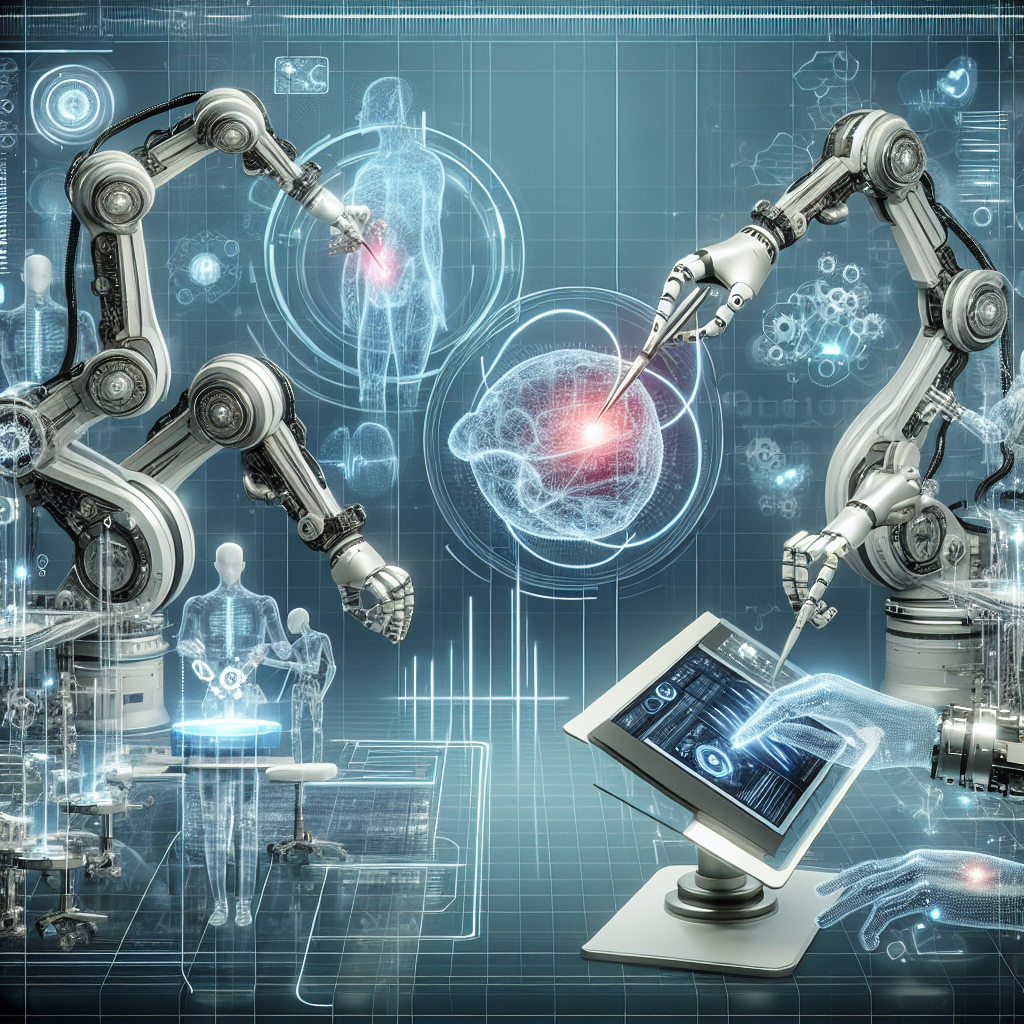Artificial intelligence (AI) continues to revolutionize various industries, and one of the most promising areas of application is healthcare. The integration of AI in healthcare innovation has the potential to improve patient outcomes, increase efficiency, and reduce costs. From diagnostics to personalized treatment plans, AI is reshaping the way healthcare providers deliver care. In this article, we will explore the role of AI integration in healthcare innovation and its impact on the industry.
AI in Diagnostics
One of the most significant contributions of AI in healthcare is its ability to improve diagnostics. AI-powered systems can analyze medical imaging, such as X-rays, MRIs, and CT scans, to detect abnormalities and assist radiologists in making accurate diagnoses. By leveraging machine learning algorithms, AI can quickly process vast amounts of data and identify patterns that may be missed by human eyes.
For example, a study published in the journal Nature Medicine found that an AI system developed by Google Health was able to detect breast cancer in mammograms with greater accuracy than radiologists. The system reduced false positives by 5.7% and false negatives by 9.4%, demonstrating the potential of AI to improve diagnostic accuracy and reduce errors.
AI can also be used to predict patient outcomes and identify individuals at risk of developing certain conditions. By analyzing patient data, including medical history, genetic information, and lifestyle factors, AI algorithms can generate personalized risk assessments and recommend preventive measures. This proactive approach to healthcare can help providers intervene early and prevent the progression of diseases.
AI in Treatment
In addition to diagnostics, AI is playing a crucial role in treatment planning and delivery. AI-powered systems can analyze patient data and suggest personalized treatment plans based on individual characteristics and response to therapy. This precision medicine approach enables healthcare providers to deliver targeted interventions that are more effective and have fewer side effects.
For example, IBM’s Watson for Oncology uses AI to analyze patient data and recommend personalized treatment options for cancer patients. By incorporating genetic information, treatment history, and clinical guidelines, Watson can help oncologists make informed decisions about the best course of action for each patient. This AI-powered tool has the potential to improve treatment outcomes and quality of life for cancer patients.
AI can also enhance the efficiency of healthcare delivery by automating routine tasks and streamlining workflows. Chatbots and virtual assistants powered by AI can answer patient inquiries, schedule appointments, and provide information about medications and treatment options. By offloading these tasks to AI systems, healthcare providers can focus on more complex and critical aspects of patient care.
Challenges and Considerations
While the potential benefits of AI integration in healthcare innovation are significant, there are also challenges and considerations that need to be addressed. Privacy and security concerns are paramount, as the use of AI in healthcare involves the processing of sensitive patient data. Ensuring compliance with data protection regulations, such as HIPAA in the United States, is essential to safeguard patient information and maintain trust in AI-powered systems.
Another challenge is the lack of transparency and interpretability of AI algorithms. Healthcare providers and patients need to understand how AI systems arrive at their recommendations and be able to verify the accuracy and reliability of the results. Developing explainable AI models that can provide insights into decision-making processes is crucial for gaining acceptance and adoption in healthcare settings.
Furthermore, there is a need for ongoing training and education to ensure that healthcare professionals are equipped with the knowledge and skills to effectively use AI technologies. Integrating AI into existing workflows and systems requires a cultural shift and organizational support to overcome resistance to change and promote collaboration between humans and machines.
FAQs
Q: What is the role of AI in healthcare innovation?
A: AI plays a crucial role in healthcare innovation by improving diagnostics, treatment planning, and delivery, enhancing efficiency, and personalizing patient care.
Q: How can AI improve diagnostics in healthcare?
A: AI can analyze medical imaging, patient data, and genetic information to detect abnormalities, predict patient outcomes, and identify individuals at risk of developing certain conditions.
Q: What are the challenges of AI integration in healthcare?
A: Challenges include privacy and security concerns, transparency and interpretability of AI algorithms, and the need for ongoing training and education for healthcare professionals.
Q: How can healthcare providers address privacy and security concerns related to AI?
A: Healthcare providers can ensure compliance with data protection regulations, such as HIPAA, and implement safeguards to protect patient information from unauthorized access or misuse.
Q: What are some examples of AI-powered systems in healthcare?
A: Examples include IBM’s Watson for Oncology, Google Health’s breast cancer detection system, and chatbots and virtual assistants for patient engagement and support.
In conclusion, the integration of AI in healthcare innovation has the potential to transform the industry and improve patient outcomes. By leveraging the power of AI to enhance diagnostics, treatment planning, and delivery, healthcare providers can deliver personalized care that is more effective, efficient, and cost-effective. While there are challenges to overcome, the benefits of AI integration in healthcare are immense, and the future of healthcare is undoubtedly AI-driven.

